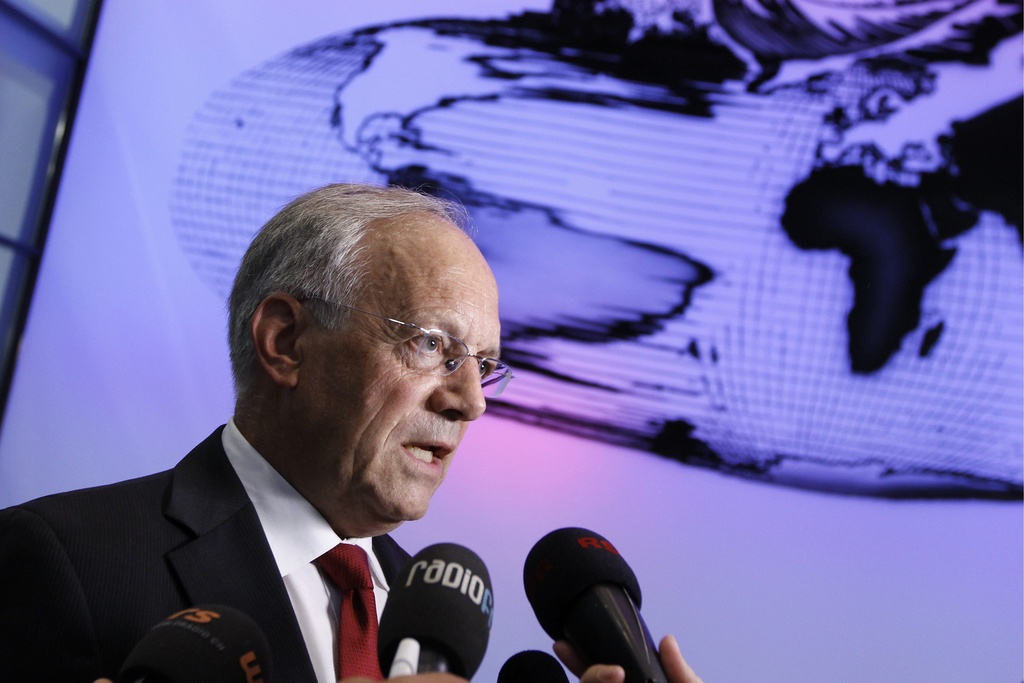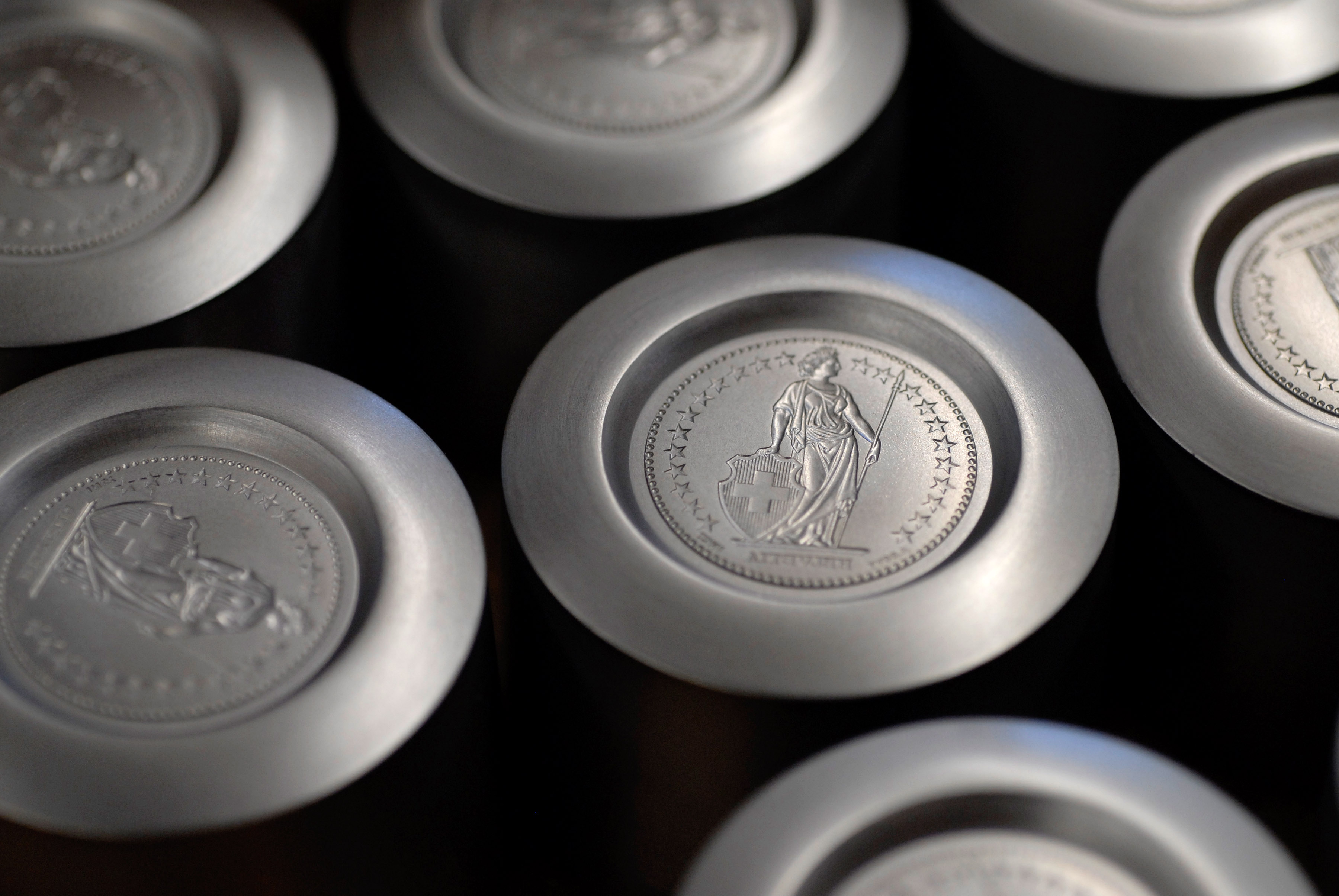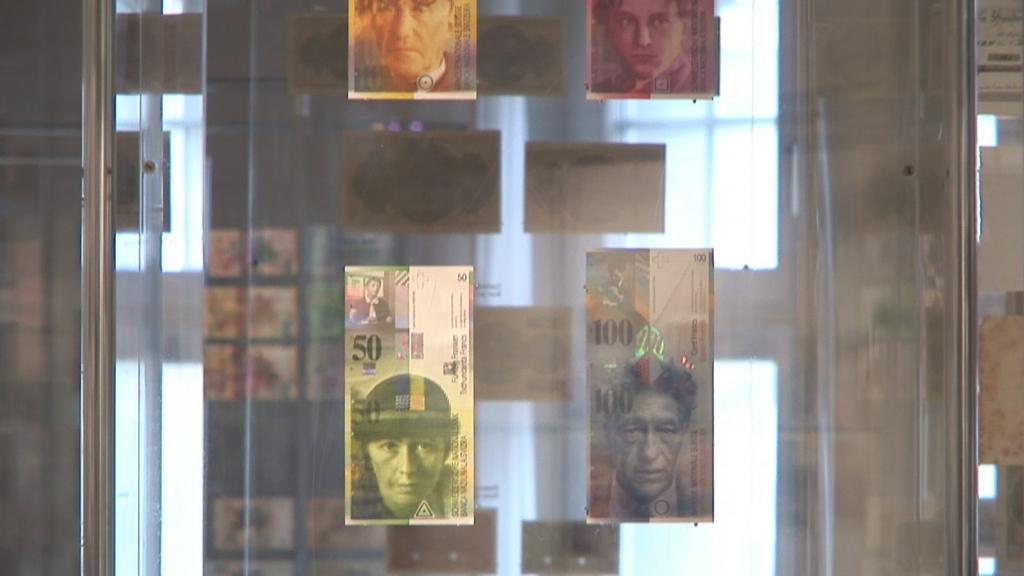Portuguese embassy staff strike over franc

Exporters and tourists are not the only ones suffering from the strong franc: Portuguese consular staff are striking over the franc’s rise and austerity measures.
They say their salaries have fallen by 30 per cent since 2010 and should be readjusted; they have contacted the Swiss foreign ministry for support. Italian embassy staff in Bern are also unhappy about wages being paid in euros.
Portuguese consular staff – mostly administrative and technical workers – have been on strike in Switzerland since August 29.
The Portuguese embassy in Bern as well as consulates in Geneva, Sion, Lugano and Zurich, which represent some 200,000 Portuguese nationals living in Switzerland, are reportedly closed.
“If this situation continues, we’re heading towards extreme poverty in Switzerland,” consular union representative Marco Martins told swissinfo.ch.
The Swiss franc, considered a safe haven currency, has gained about 25 per cent in value against the euro and the dollar over the past four years. One Swiss franc is currently worth €0.87 or $1.24.
With the appreciation of the franc, the average monthly wage at Portuguese diplomatic missions has fallen from SFr4,000 ($5,000) to SFr2,600-2,700.
While many Europeans would not turn their noses up at that kind of money, in Switzerland, where there is no minimum wage, the cost of living is much higher. In the Swiss capital Bern the average monthly salary in 2008 was SFr5,716.
Double whammy
Talks held on August 26 in Lisbon between the Portuguese union representing diplomatic mission and consular staff and the Portuguese foreign ministry failed to reach an agreement.
“The ministry claims they cannot afford to compensate the losses,” Martins said. “They asked us for understanding and for us not to go on strike, but we have no choice.”
The government seems unwilling to budge. José Cesario, secretary of state for Portuguese communities, told the Portuguese Lusa news agency after Monday’s meeting: “Regarding Switzerland and other countries where there have been wage losses as a result of exchange rate differences, the union was informed that the government is currently not in a position to satisfy their demands.”
In addition to the effect of the strong franc, their wages have also been slashed by ten per cent due to a deficit-cutting programme back in Portugal.
Legal situation
Under Portuguese law, consular officials are paid in euros which are later converted into the local currency. But the law provides for wage adjustments in the event of severe loss of purchasing power.
“We have reached an impasse and the strike will continue,” Martins concluded.
The protestors say their strike action is based on statutes governing Portuguese staff abroad, which stipulate that their salaries should be similar to those practised in the host country.
To further their cause, the strikers have contacted the Swiss foreign ministry and expect to be received later this week.
The foreign ministry has drawn up a “declaration of guarantee” under which foreign missions in Switzerland undertake to “treat an employee according to the pay and work conditions in use in the locality and profession in question”.
At the time of publication of this article, the Portuguese embassy in Bern had not responded to written email questions from swissinfo.ch. There are a total of 56 consular officials.
Italian discontent
Discontent over wages paid in euros is not confined to Portuguese consular officials. In the Italian embassy in Bern a dozen employees have contacted the Swiss union Unia for support in talks with their employer.
Unia spokeswoman Anne Robin confirmed: “We’ve had a meeting with representatives from the embassy to find a solution to the problem.”
According to an Italian embassy official, “[around 20] local staff in the lowest wage class earn €2,900 net per month”.
Corrado Pardini, a Unia director and Bern-based politician for the centre-left Social Democratic Party, said the issue was being monitored closely. A solution may come from the Italian foreign ministry, which has not yet reacted.
Broader problem
“The issue of embassy staff is part of the broader problem of pressure to pay employees in euros or to adjust wages to European currencies,” he noted.
The situation is also evolving within Switzerland. Pardini recently presented a parliamentary motion urging the government to veto the payment of wages in foreign currencies in Switzerland.
One solution could be to modify article 323b of Swiss business law, the Code of Obligations, which now allows wages to be paid in euros if there is agreement between employers and staff.
The Swiss franc is a so-called “safe haven” currency, which means that investors and speculators buy it when other currencies, including the euro and the dollar, are under pressure.
The franc has gained about 25 per cent in value against the euro and the dollar over the past four years.
The Swiss National Bank has emphasised that it does not pursue an exchange rate target, but consistently bases its monetary policy on its legal mandate: to ensure price stability, while taking due account of economic developments.
Starting in March 2009 the SNB intervened in currency markets. But after pumping in 15 per cent of GDP in May 2010 to little effect, it dropped them in June 2010. These forays led it to a loss of SFr21 billion last year, its biggest ever.
(Translated from Portuguese by Simon Bradley)

In compliance with the JTI standards
More: SWI swissinfo.ch certified by the Journalism Trust Initiative







You can find an overview of ongoing debates with our journalists here . Please join us!
If you want to start a conversation about a topic raised in this article or want to report factual errors, email us at english@swissinfo.ch.